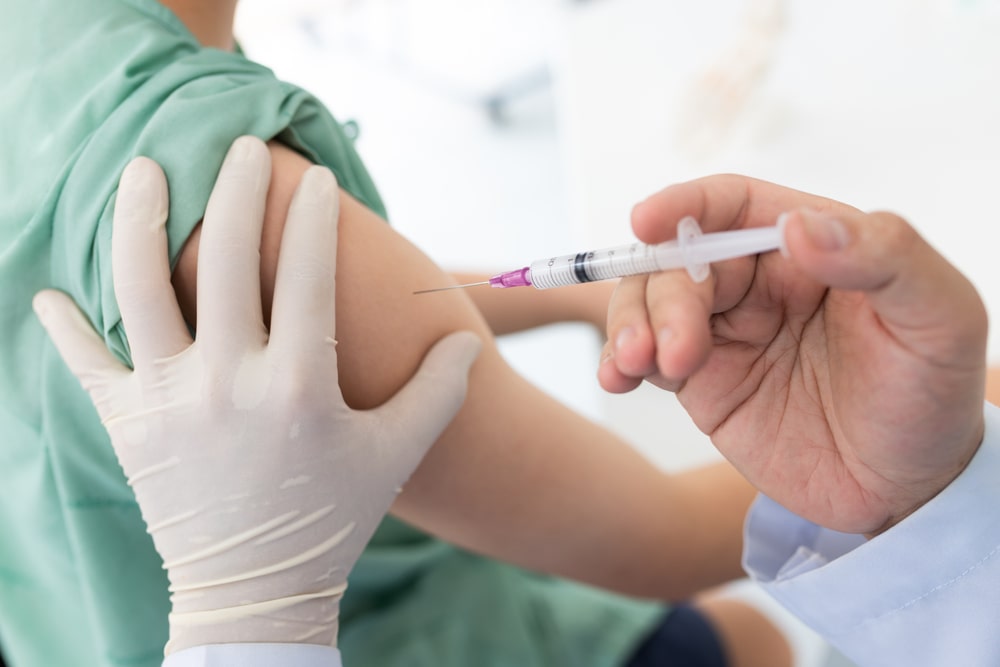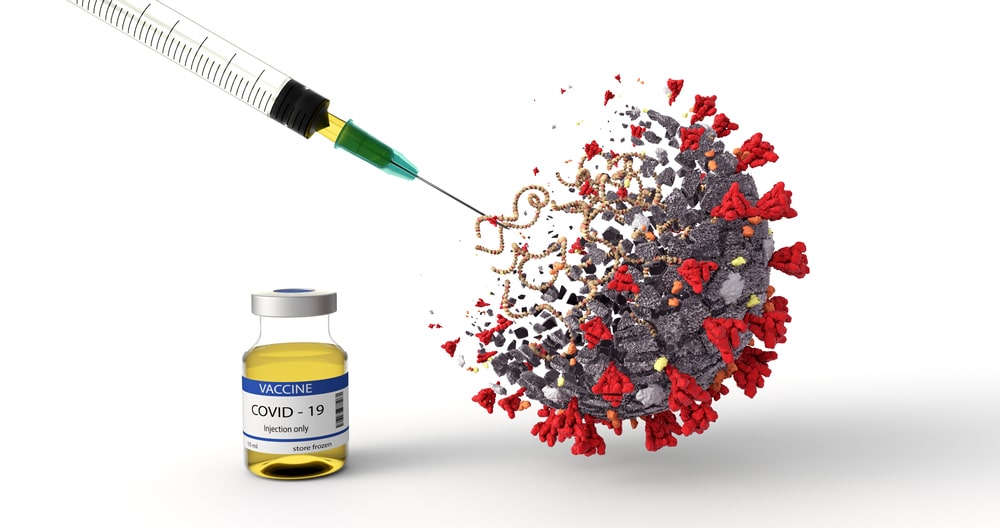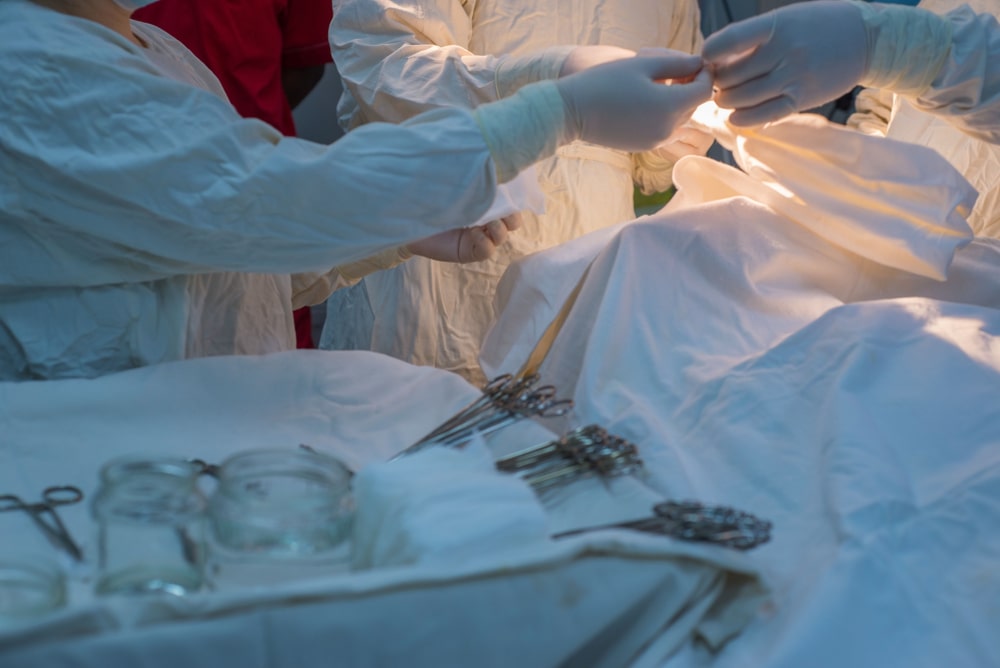देश में तेजी से बढ़ते कोरोना संक्रमण के बीच 1 मई से 18 वर्ष से अधिक उम्र के सभी लोगों को वैक्सीन लगनी शुरू हो जाएगी। इसके लिए कोविन पाॅर्टल, अरोग्यसेतु एप के माध्यम से वैक्सीन स्लाॅट बुकिंग के लिए रजिस्ट्रेशन भी शुरू हो गए हैं। आप उपरोक्त के माध्यम से वैक्सीन लगवाने के लिए रजिस्ट्रेशन कर सकते है। रजिस्ट्रेशन निशुल्क है। हालांकि पहले ही दिन पाॅर्टल पर रजिस्ट्रेशन करवाने वाले लोगों की संख्या ज्यादा होने से वेबसाइट क्रेश होने तक की खबरें भी आई थी। ऐसे में कईं लोगों के स्लाॅट बुक नहीं हो सके थे। लेकिन आप निरन्तर वेबसाइट पर चैक करते रहे, जैसे ही स्लाॅट उपलब्ध होंगे आपका रजिस्ट्रेशन हो जाएगा।
वैक्सीन को कोरोना (Corona) से लड़ाई में महत्वपूर्ण माना जा रहा है। यह न सिर्फ संक्रमण के खतरे को कम करती है बल्कि हमारी रोग प्रतिरोधक क्षमता को भी बढ़ाती है। हालांकि कुछ मामलों में दोनों डोज लेने के बावजूद कोराना संक्रमित होने की खबरें भी आई है।
कोरोना वैक्सीन क्या है ? (What is Corona Vaccine)
वैक्सीन में किसी जीव के कुछ ऐसे कमज़ोर या निष्क्रिय अंश होते हैं जो ही बीमारी का कारण बनते हैं। ये शरीर की रोग प्रतिरोधक रक्षा प्रणाली को संक्रमण व वायरस की पहचान करने के लिए प्रेरित करते हैं। वैक्सीन ऐसे वायरस के खिलाफ हमारे शरीर में एंटीबॉडी बनाती है जो बाहरी हमले से लड़ने में हमारे शरीर की मदद करती हैं।
वर्तमान में केन्द्र सरकार द्वारा दो प्रकार की वैक्सीन (Vaccine) लगवाई जा रही है, जिनके नाम इस प्रकार है।
भारत बायोटेक द्वारा निर्मित – कोवैक्सीन (Covaxin)
सीरम इंस्टीट्यूट द्वारा निर्मित – कोविशील्ड (Covishield)
इन दो वैक्सीन्स के अलावा रूसी वैक्सीन स्पुत्निक वी का भी आने वाले दिनों में उपयोग शुुरू हो जाएगा।
क्या वैक्सीन (Vaccine) लगवाने के बाद भी कोरोना हो सकता है?

वैक्सीन लगवाने के बाद भी कोरोना संक्रमण से इनकार नहीं किया जा सकता है। देश में ऐसे कुछ मामले रिकाॅर्ड हुए हैं जिनमें वैक्सीन लगवाने के बाद भी लोगों के संक्रमित होने की जानकारी सामने आई है लेकिन वैक्सीन लगवाने के बाद संक्रमण व बीमारी का खतरा सामान्य बना रहता है। वैक्सीन लगवाने के बाद आप जल्दी ठीक हो सकते हैं। वैक्सीन हमें जानलेवा कोरोना से बचाती है। ऐसे में वैक्सीन जरूर लगवानी चाहिए।
पहला डोज लेने के बाद वैक्सीन (Vaccine) का दूसरा डोज कब लें ?
वैक्सीन का पहला डोज लेने के बाद दूसरा डोज लेना इस बात पर निर्भर करता है कि आपके कौनसी वैक्सीन लगी है। अगर आपके कोवैक्सीन (Covaxin) लगी है तो आप कावैक्सीन (Covaxin) का ही दूसरा डोल 28 से 42 दिनों के बीच ले सकते हैं। अगर आपके कोविशील्ड (Covishield) लगी है तो आप कोविशील्ड (Covishield) की ही दूसरी डोज 28 से 56 दिनों के बीच ले सकते हैं।
कोरोना वैक्सीन (Corona Vaccine) के साइड इफेक्ट्स
कोरोना की वैक्सीन लगवाने के बाद लोगों के शरीर पर अलग-अलग प्रकार के प्रभाव व लक्षण देखे जा सकते हैं। इसमें मुख्यतः हल्का बुखार, कमजोरी, जोड़ों में दर्द, शरीर में पानी की कमी आदि प्रमुख है। हालांकि ये लक्षण ठीक भी हो जाते हैं। वहीं, कुछ लोगों के शरीर पर किसी भी प्रकार के लक्षण नहीं दिखते हैे। अगर वैक्सीन लगवाने के बाद आपको हल्का बुखार आता है तो आप चिकित्सकीय परामर्श ले सकते हैं।
किन लोगों को कोरोना वैक्सीन (Corona Vaccine) नहीं लगवानी चाहिए?
इंडियाडाॅटकाॅम ने भारत बायोटेक के हवाले से लिखा है कि ऐसे लोगों को कोवैक्सीन नहीं लगवानी चाहिए जो लोग ऐसी दवाइयां ले रहे हैं जिससे उनकी इम्यूनिटी पर असर पड़ता है। साथ ही प्रेग्नेंट महिलाओं, ब्रेस्ट फीडिंग करवाने वाली महिलाओं को भी कोवैक्सीन नहीं लगवानी चाहिए क्योंकि इन पर वैक्सीन की स्टडीज नहीं की गई है। साथ ही जिन लोगों को कोविशील्ड (Covishield) में मौजूद इंग्रीडिएंट से एलर्जी है तो उन लोगों को भी कोविशील्ड (Covishield) वैक्सीन Vaccine नहीं लगवानी चाहिए। पहली डोज लगाने के बाद एलर्जी होने पर भी दूसरी वैक्सीन नहीं लगवानी चाहिए।
कोरोना से बचाव के सामान्य उपाय क्या है?
कोरोना से बचाव के सामान्य उपाय यही है कि आप संक्रमण से दूर रहने के लिए सरकार की गाइडलाइन यथा व्यवस्थित मास्क लगाना, निश्चित सामाजिक दूरी की पालना करना, भीड़भाड़ वाली जगहों पर जाने से बचना, बार-बार साबुन से हाथ धोना, सार्वजनिक जगहों पर नहीं थूंकना व वैक्सीन लगवाने से इस संक्रमण से बचा जा सकता है।
उदयपुर में किन सरकारी सेन्टर्स पर वैक्सीन लगेगी?
उदयपुर में करीब 50 से ज्यादा सेन्टर्स पर कोरोना की वैक्सीन लगाई जा रही है। इनमें सरकारी पीएचसी, सीएचसी सहित निजी अस्पताल भी शामिल है। आप कोविन एप पर वैक्सीन के लिए रजिस्ट्रेशन के दौरान आपके वैक्सीन लगावाने का की तारीख और केन्द्र का चुनाव कर सकते हैं। साथ ही एक बार रजिस्ट्रेशन के साथ आप परिवार के चार अन्य सदस्यों को भी वैक्सीन के लिए जोड़ सकते हैं।
इसके अलावा उदयपुर संभाग के कुछ खास अस्पतालों में भी वैक्सीन लगाई जाएगी। यह अस्पताल कोरोना जागरूकता को लेकर भी विशेष काम कर रहे हैं। उदयपुर के सेक्टर 4 स्थित डॉ.चौधरी हाॅस्पीटल भी कोरोना जागरूकता को लेकर काम कर रहा है। सोशल मीडिया के माध्यम से डॉ.चौधरी हाॅस्पीटल ने कोरोना के प्रति जागरूकता में बड़ी भूमिका निभाई है। डॉ.चौधरी हाॅस्पीटल को कोरोना रोगियों का इलाज भी किया जा रहा है। डॉ.चौधरी हाॅस्पीटल में वर्तमान में 45 वर्ष से अधिक उम्र के लोगों को कोरोना वैक्सीन लगाई जा रही है। 1 मई के बाद से ही डॉ.चौधरी हाॅस्पीटल में भी 18 वर्ष से अधिक उम्र के लोगों को वैक्सीन लगनी शुरू हो जाएगी।









